Isn’t it always the way? You set out with great ideals or should that be ideas, and then things change en route, the direction veers off, but often if you can make it, the final result can be better for the diversion. The glory of living and working from the boat as continuous cruisers is that you accept and indeed expect things to change- whether the weather… the WiFi signal…the way we feel. Why so often in life do we cling to an original plan, and dismiss deviations as weaknesses rather than opportunities?
This week we were between commitments and decided not to potter in our usual way but to crack on (as much as you can in a 15 ton, 4mph top speed narrowboat). After all those months being still in lockdowns 2 and 3 it was as if the ability to move was something we couldn’t get enough of. We powered through Staffordshire and into Cheshire. As a result, it has amazed me how much we have learned, seen, and to some extent how much we often fail to value so many things we take for granted, at home and at work.
Teamwork for example. Not the contrived stuff of groupwork projects. Not the often glib stuff of job interviews, job applications or personal statements but the reality. Teamwork which requires constant evaluation and readjustment of your roles in order for the whole to be successfully achieved. Good teamwork also demands trust.
Sometimes that’s trust in your close team, and sometimes that involves others from outside involved in supporting you. We made it through the 1.6 mile Harecastle Tunnel this week, carved between Kidsgrove and Tunstall. Only one of 3 tunneled passages remain and this is a single boat width. You need to trust the Canal & Rivers Trust staff who guide you in, count you through, and are prepared to come and save you if things go wrong (they do tell you this as they usher you in, firmly shut the doors behind you and switch the ventilation fans on to give you clean air to breathe). You have to trust there is an end in sight and its not an oncoming boat they’ve let in by mistake!
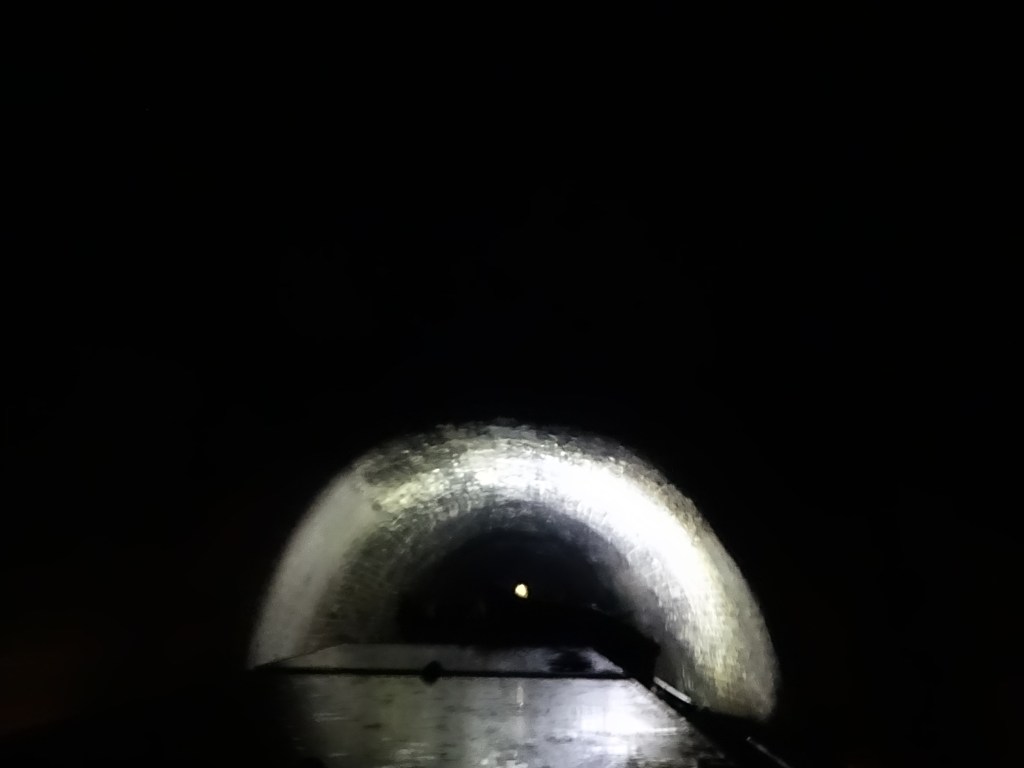
It made me reflect that teamwork is about recognising the strengths of the individuals and letting each play to their strengths. I am not brilliant in dark, wet and cold places. Imagination is something I have in excessive abundance and that has its place, but not as the tillerman of a boat that needs to go calmly through a 1.6 mile tunnel in the dark… Deviation and sudden movements can damage the boat, tunnel walls and result in my roof garden being removed!
I can though plan ahead, ensure the thermos is full of boiling water (no naked flames allowed in the tunnel so no boiling kettle on the gas stove) and produce piping hot cuppas on the 40-minute journey through to cheer the dripping, wet and cold tillerman. Not a mega task but one which means we get to the end all feeling better about the experience.
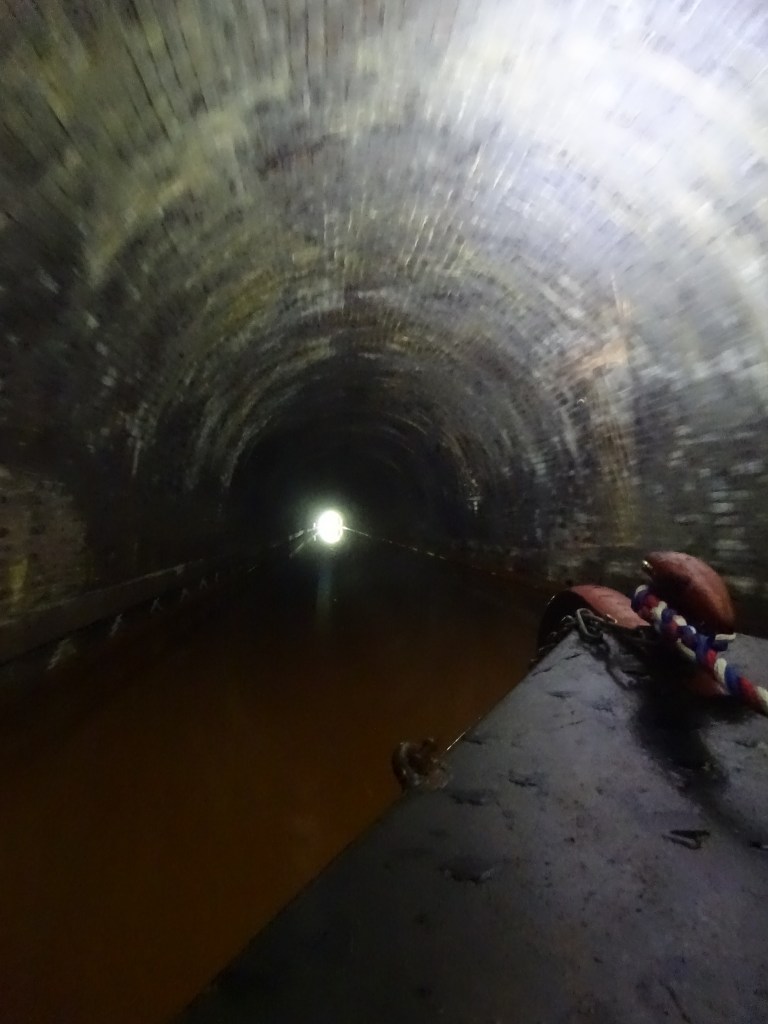
You emerged blinking on the other side into another world. Heading south to north as we are, the whole canal turned a vivid orange by the time we emerged on the other side – the result of iron oxide from former mines.

Outside of tunnels, teamwork is essential to move a narrowboat as fast as possible though locks, those amazing feats of engineering which take laden boats up and down hills. We did 20 of the 31 locks of Heartbreak Hill aka The Cheshire Locks in a single day, but achieving that speed through flights (sets of multiple locks – in this case sets of multiple pairs of locks) would have been impossible without effective teamwork.

We knew what needed to be done, the goal was to clear as many locks as comfortably possible. The only pre-discussion was who would be at the tiller of the boat and who would be the lock wheeler armed with a windlass to open paddles. That done we began. The lock wheeler went ahead to set the lock (get it ready by gauging the water levels, opening paddles if needed to adjust levels and opening the lock gate for the boat to be brought in). The gate the boat enters through then needs to be closed together with any paddles at that end of the lock, before the paddles at the opposite end of the lock need to be operated for the water to flow in or out (depending on whether you are going up or down) before the gates in front of the boat can be opened and the boat released to the new level. In a flight the lockwheeler can often run ahead and set the next lock whilst waiting for the one where the boat is to fill or empty.

If the tillerman/woman manoeuvring the boat stays onboard the whole physical effort falls on the lock wheeler. Share the load and things get quicker. The lock wheeler can leave the tillerman to bring the boat in, closing gate and paddles at that end whilst they move to set (prepare) the next lock and return to fill or empty the lock where the boat is now. If there is another boat going in the opposite direction you all work together to save water and help each other through. We haven’t seen many other boats yet though so it’s been down to our team of 2.

It made me think how often we seek examples of team work when employing people and how often what we fail to recognise is that the responsive nature of teamwork is what makes it important and in business so cost-effective. The examples we give are often where we galvanised others, led others, not where we worked and thought ahead and identified ways of working that made the final goal more efficient, rapid or easy for all involved.
The sense of achievement of really effective teamwork is a huge reward in itself (along with, in this instance a well-earned fabulous pizza from near the final mooring of the day and a good glass of red). It is the satisfaction of a job well done, a role well played in the whole and an achievement of which all can justifiably be proud.
We have become very aware that the lockdown helped develop our team working. We were isolated, forced to be together much more than we had previously been or perhaps had thought of being. Although we have known each other for approaching 4 decades, we still discovered new things about each other’s approaches and ever-changing ideas influenced by research and exploration. Perhaps when setting up new teams in business, when asking students to work in teams, making an immersive initial experience would pay off. It’s about not looking for ways out of the team, or ways to demonstrate leadership all the time , but learning about the different strengths of the team and working out together how to maximise those for the team.
This last year has made me aware of how much young people also need to be able to demonstrate their ability to employ technology to create effective working relationships, achieve goals, galvanise teams and communicate socially and in a working setting. Universities, colleges and schools succeed if they give students the opportunities to learn, develop and demonstrate these skills. Collaborating with colleagues in other countries is one way of showing just how well individuals can use technology as a working tool. It’s also a lesson for parents – enabling children to become team players from an early age is vital, with all that entails.
It has been strange after such an enforced time in isolation to begin seeing people again, to realise how insular we have been, and also how scary the lifting of lockdown can be. We have been hugely fortunate this week to have had meetings with family and friends, some of whom have been shielding. Their experiences reinforced how different everyone’s pandemic has been to this point. Meeting up with loved ones, friends and family is a huge bonus at any time. This time it made us more aware of how different our world has become from theirs, and made us immensely grateful for how rich our lives have become as a result of making the decision to live and work afloat.
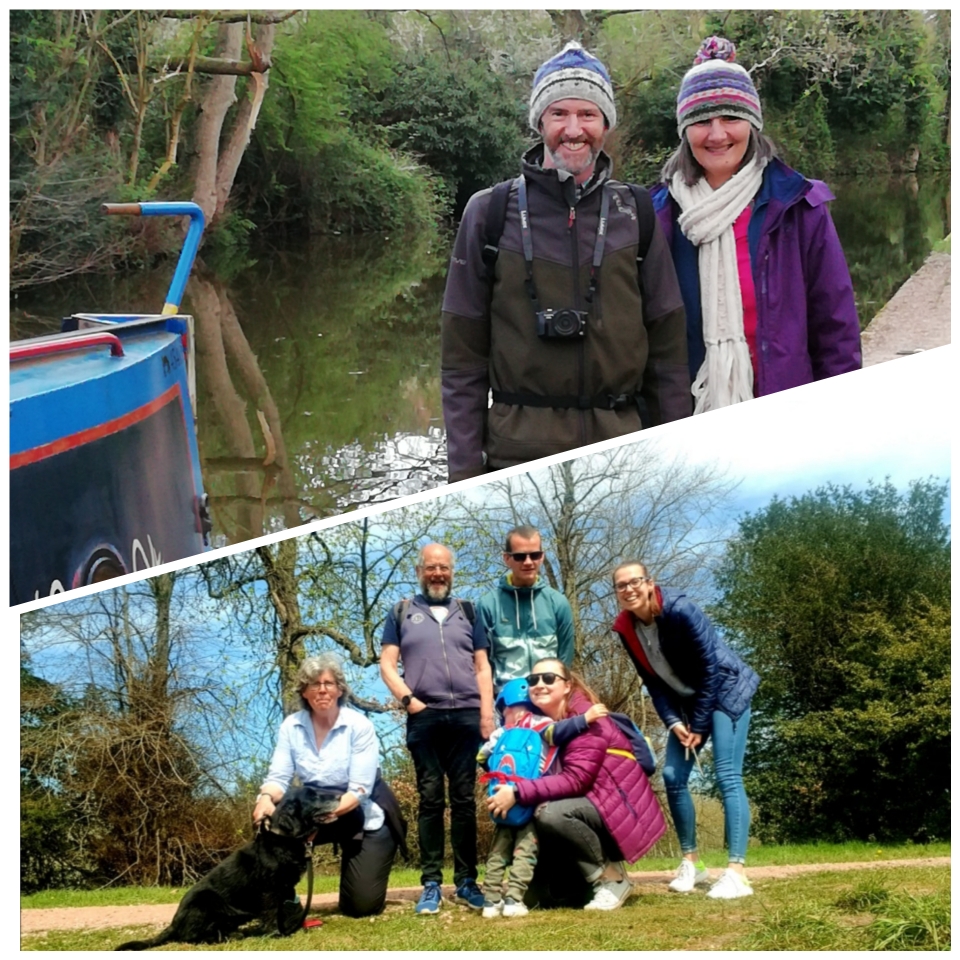
We are more aware of the changing seasons. We have been watching stark, naked hedges take on the clothing of multi-hued green leaves and blossom or in the case of the blackthorns (sloes) blossom and then leaves; spotting emerging wild flowers and grasses; seeing mallards, swans and geese mating, nesting and now hatching fluffy young which seem instant experts at narrowboat dodging down the canals. These lighten the days, add colour and balance to work and put work into perspective.

Things rarely go according to plan which always tests the team. It’s usually when complacency has set in, when you think, “Got the hang of this.” This week all was going brilliantly until we got to Rumps Lock just outside Middlewich…now renamed by us.

Just as the boat left the lock there was a horrible grinding noise. We were fortunate to be able to pull over onto moorings fast. Deck floor up, engine exposed and 4 studs that should attach the drive shaft to the engine were revealed to have clocked off… unattached engine and drive shaft means the boat isn’t going anywhere really. Steve began delving deep to find the culprits…

He found them in the depths, reattached them temporarily and we limped into the next lock whilst I consulted Google for a boat yard or chandlery with which Middlewich is remarkably well equipped.
Our team expanded at the lock thanks to two very welcome smiling and efficient CRT volunteers there to take the strain. Once through we slowly moored again and Steve headed to a boat yard and chandlery armed with pictures of our offending studs. Sucking of teeth and dire warnings about engines needing replacing led to recognition they couldn’t help but gave us the number of someone who might. Being on lock moorings we needed to move ASAP so limped on into the town past the junction with the UK’s shortest canal, the Wardle just 154 feet onto the Shropshire Union. One single solitary mooring space remained amid a melee of hire boats and long term moorings before the next lock. We slid in with relief just a few inches spare either end of Preaux.
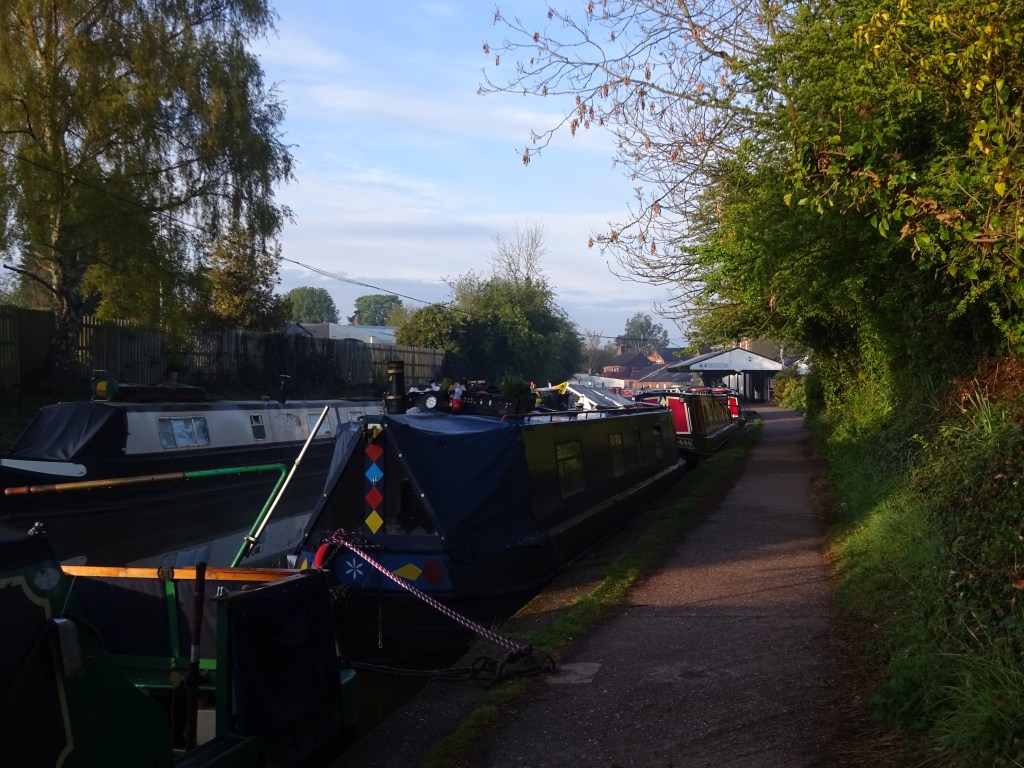
It turned out to be good luck. Middlewich Wharf produced another chandlery and an affable owner, Paul. He predicted what we needed, took a look at one of the offending studs, came back to our boat to check for himself and ordered replacements for us at less than £15. We also discovered we were on his moorings but he said it was fine as I relentlessly threw the ball his dog brought me; fed his dog and Cola treats from my pocket and he even offered us a new boat dog (we declined). He then let me know that if we were moored here all weekend waiting for the studs to arrive, they would open a horsebox bar and marquee a stone’s throw from the boat. Not sure if that’s just to entertain me, or for the town of Middlewich as a whole! (If you want to hire a holiday boat his Floating Holidays boats look good too!)

We had intended to stop in Middlewich briefly to shop but this extended stay, is a suprise bonus. Despite having spent many years as a teenager and in my 20s in Cheshire, this is a town I know nothing about. Middlewich, a salt town dating from Roman times is proving both a delight and education. This is an area where the canal would have been busy with barges laden with salt.
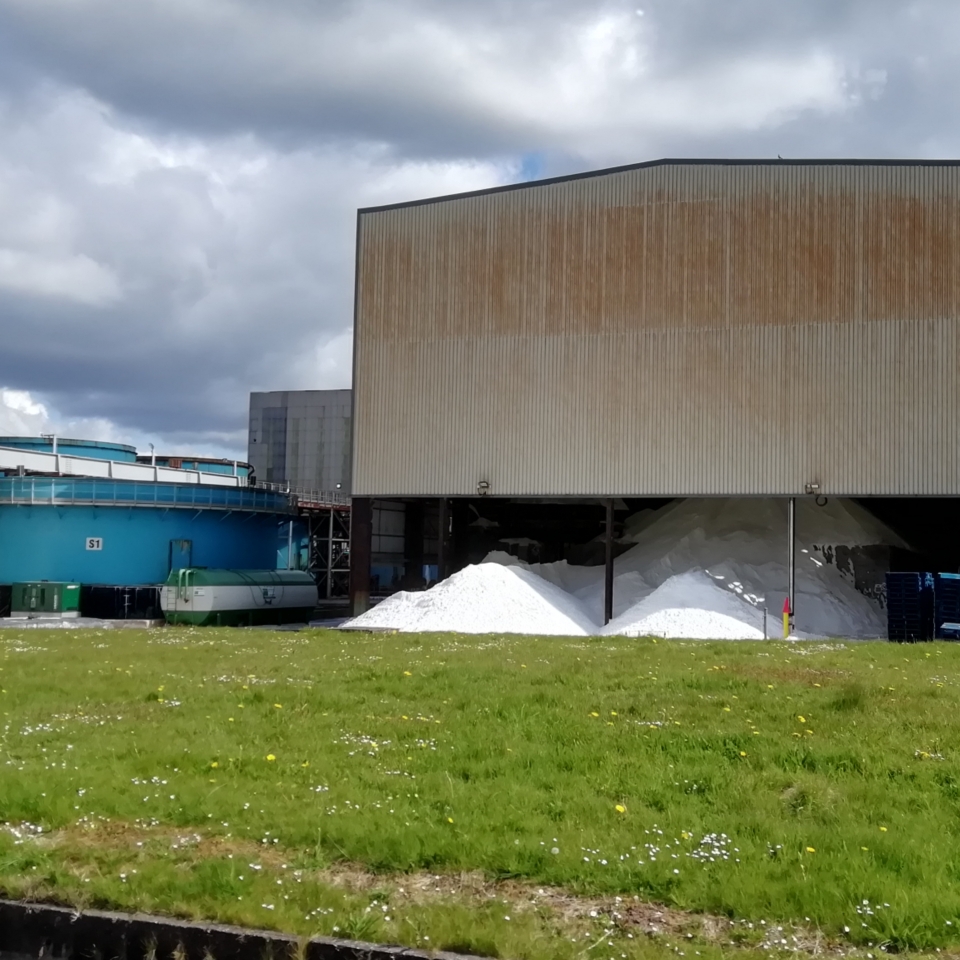
Eye catching architectural features, friendly people and fascinating historical details appear at every turn.
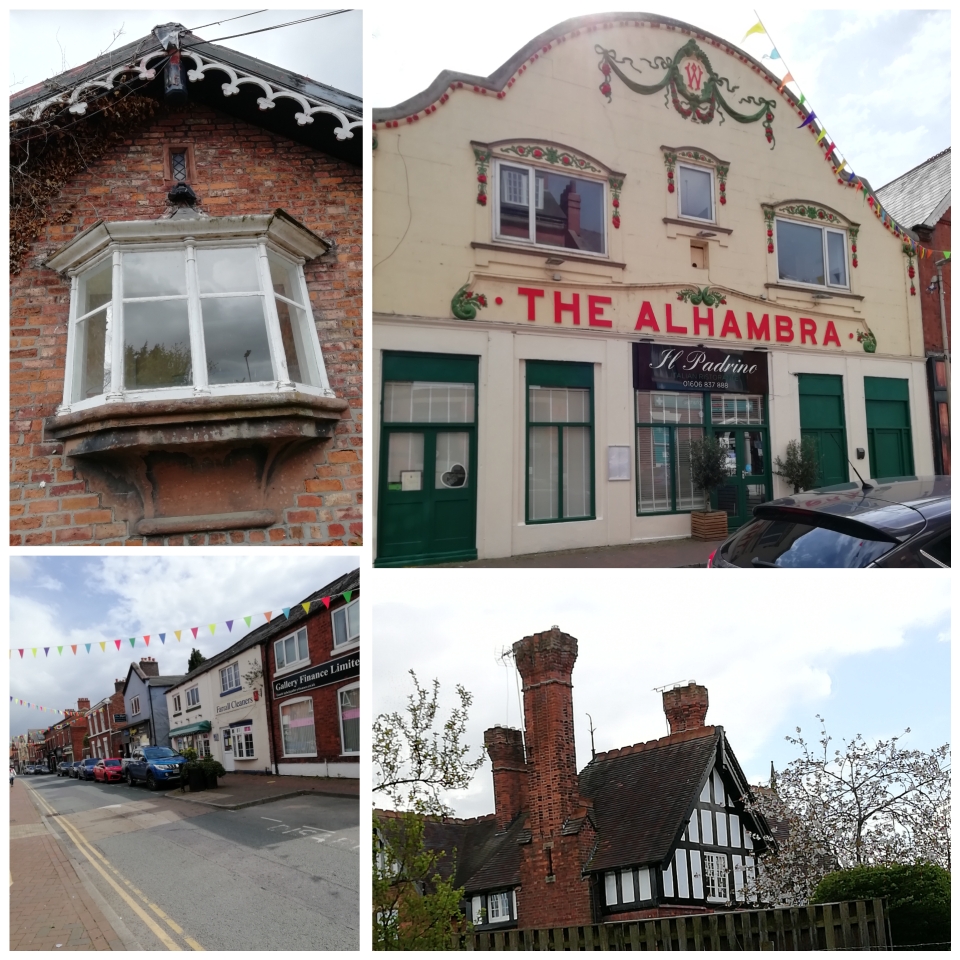
None of this was in our original plan, but it’s a forced change that is beneficial. It’s teaching this team the advantages of flexibility, coping with change and making the most of the hand you are dealt. Additional pluses are that it started raining just as we arrived back at the boat with the shopping so we didn’t get wet but the garden got a good soaking which saved me having to water it!
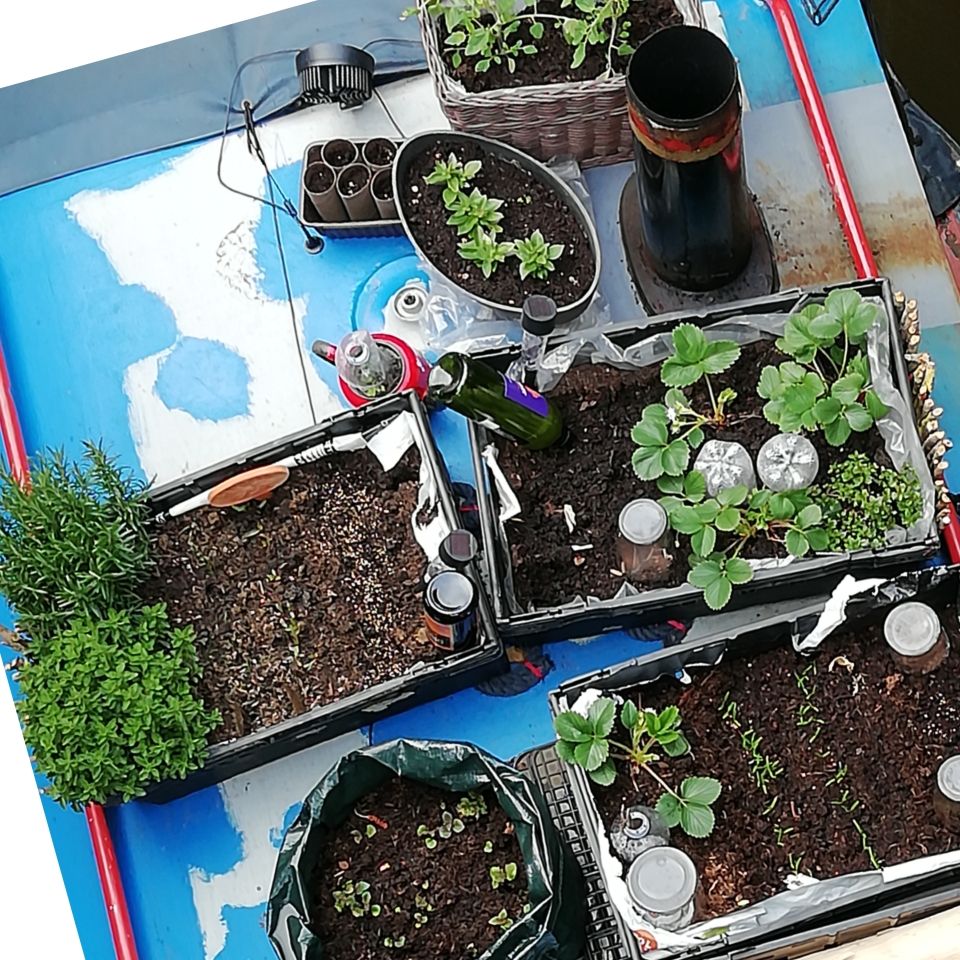
As WiFi is great where we are moored, I can get ahead with some of the work I have on. No excuses – can’t move! We work hard when we work but we work when we choose to because we have chosen to downshift.
“Now we work to live, not live to work.”
We have balance and perspective as well as a rich ever changing pattern to our days which includes never knowing what we might see, or encounter next. It keeps teamwork relevant and necessary every single day. “Now we work to live, not live to work.”
